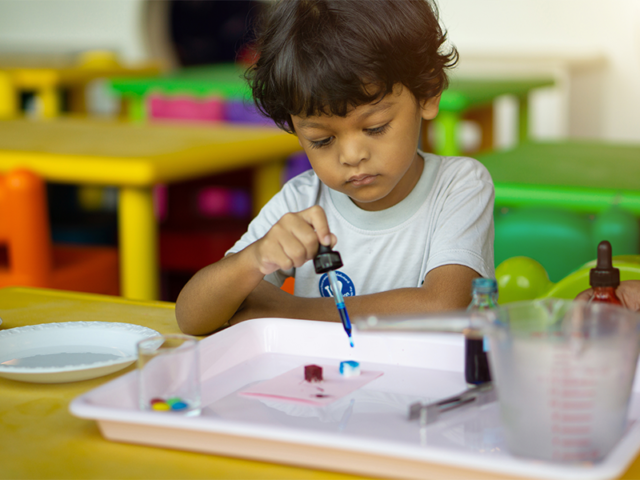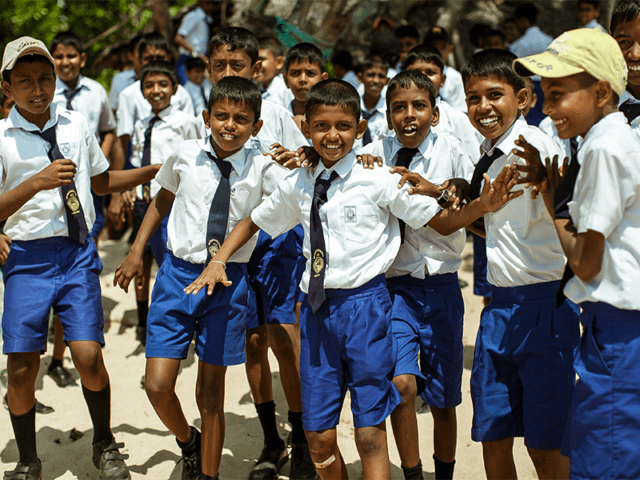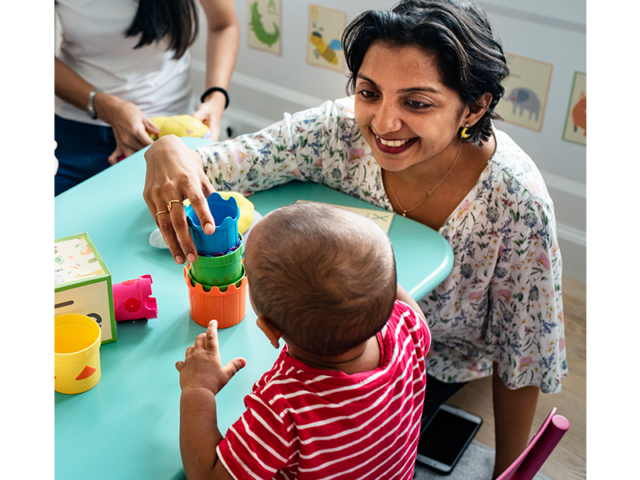On 29th July, the Union Cabinet approved the New Education Policy or the NEP 2020 and along with it also renamed the HRD Ministry as the Education Ministry. It created some enormous reforms in schools and higher education bodies. Apart from educational changes, the policy also seeks to increase public investment in the education sector to 6% of GDP from the current 4%.
This education policy aims to reconstruct both school and higher education systems in India. The system, which earlier relied on rote learning (or mugging) will now be focusing more on experiential learning and vocational training. What it envisions is a “Light and Tight” single regulatory higher education system.
So what happens to your kids now? Don’t worry mums, we’re here to simplify NEP 2020 for you!
What Does The New Education Policy 2020 Aim To Provide?

The New Education Policy 2020 aims to bring about a lot of significant changes in your child’s life. An official release mentioned, “About two crore out-of-school children will be brought back into the mainstream under NEP 2020. Open learning for classes 3,5 and 8 through NIOS and State Open Schools, secondary education programs equivalent to Grades 10 and 12, vocational courses, adult literacy and life-enrichment programs are some of the proposed ways for achieving this.” Now, here’s what all this jargon means:
- NEP aims to provide infrastructure support to educational organisations, in addition to the “Light and Tight” regulatory system it will stand for.
- There will be a proper tracking system of students and their learning levels.
- Multiple formats of teaching will be facilitated so that students will be able to learn both in a formal and informal mode.
- Kids who have dropped out will be brought back into the system. The policy also promises that no child shall lose any opportunity to learn and excel, because of their circumstances of birth or background.
- There will be an association of counsellors or well-trained social workers with the schools.
Did You Know?
India is seeing a New Education Policy after 34 years!
What Does The New Education Policy Mean For Your School Kids?
Here are the NEP 2020 highlights you need to know based on your child’s age:
1. If Your Kid’s In The Age Bracket Of 3-6 Years

Earlier the Indian education system was spread across 12 years, also popularly known as 10+2. Now, the structure reads as 5+3+3+4 and will be spread over 15 years. So, if your kid is within the age group of 3 to 6 years, they will be brought under the pre-schooling or the Anganwadi system. These former years will be followed by two or more years in grades 1 and 2, thereby making it a total of 5 years. The experts who were consulted by the government while drafting NEP 2020, mentioned that this was recommended because a child’s maximum brain development happens around this age bracket. We’ve curated the best fairy tale stories for kids, do have a visit here.
2. If Your Child’s In The Age Bracket Of 7-9 Years

After the Anganwadi system, a second tier shall be followed. It will be spread across three years covering grades 3, 4 and 5. The language of instruction will be the mother tongue or the respective regional language. It’s been an age-old obsession of Indian parents wanting to send their kids off to English-medium schools and in return, the mother tongue becomes a second language, or worse even a third language. So are you still worried if your child’s ever going to learn Marathi, Gujarati or Bengali properly?
3. If Your Kid’s In The Age Bracket Of 10-12 Years

Once your kids pass grade 5 and by the time they will be in class 8, they will already be in an internship. Vocational training and coding will be introduced to kids from class 6 and the main focus of the training will be teaching local crafts and trade.
Students during this time will be encouraged to do internships under experts on local crafts. This is quite a welcome change over rote learning; children will be learning through real-life experiences and understand practical applications instead of book learning.
4. If Your Kid’s In The Age Bracket Of 13-17 Years

The earlier Secondary school which just consisted of classes 11 and 12 will now be from standard 9th to 12th. This fourth tier will have no distinction among Science, Humanities, Vocational subjects, or any extra-curricular activities. The NCERT will develop a reduced curriculum for school education, which will just focus on the basic and important concepts. Special attention will also be given to gifted kids. Moreover, students will be encouraged to choose subjects based on interest and not be confined to previous traditional streams like Arts, Science or Commerce. Simply put, a child who can study an Arts subject will also be allowed to take a Commerce subject. So your child could take Mathematics and English Literature, Physics and Accounts, or even Sociology and Economics.
Interesting Fact
A national assessment centre called Parakh will be set up by the government to make standards for State boards.
Worried About Your Child’s Results?

If you have understood the NEP 2020 till now, you have got a pretty clear idea that the results would not be single-tiered or just based on marks. It will pave the way for a new grading system and report cards in schools. A prolonged three-category approach will be followed which will include self-assessment, peer-assessment, and teacher assessment. Your child will be nurtured to develop at least one core skill when he/she finishes school! Gone are the days of, “Beta, jab hum tumhari umar ke the hum gali ki light ke neeche baith kar raat bhar padhte the.“
The press release by the government wasn’t really clear about Board exams. However, it is strongly believed that the exams for 10th and 12th will continue but shall be a very low-stake affair. The Board exams will be divided into two modules every year and students will be able to take the exam by dividing the subject into these modules.
What Does The New Education Policy Mean For College/University Kids?
Once your child passes the 12th standard, he/she will have to take a single entrance examination for admission into any college or university, which shall be conducted by the National Testing Agency.
1. If Your Child Is In An Undergrad Programme

Based on your child’s career path, he/she will be able to complete their undergraduate programme in 3 or 4 years. Multiple entry and exit options will be provided. The options in any UG course include certification after one year, advanced diploma after two years, Bachelor’s degree after 3 years, and Bachelor’s with research after 4 years!
If under any circumstances, your child needs to change institutions, the government has made it easier than ever. They can use their Academic Credit from one institution and transfer them to another.
2. If Your Child Is In A Post-Grad Programme

A Post-Graduate course will be either one year or two years in duration. This shall hopefully be dependent on the type, of course, your kid is opting for. According to the new policy, an M.Phil or Master of Philosophy will be discontinued.
MERUs or Multidisciplinary Education and Research Universities will be set up more or less, in or near the districts. As per the government, MERUs will be at par with IITs and IIMs.
Tension Nahi Lene Ka, Mummy!

Put your worries to rest because the following points will give you an overview of how your child can make use of and benefit from NEP 2020.
- Your child will at least have one or more core skills, and will even pick it up from a very young age. Your child will be under a holistic development, which was earlier a bit difficult to achieve in schools.
- Though it might be a bit difficult for grade 6 kids to learn to code, it’s a great thing that schools will be introducing it at a very young age when kids are quicker to learn.
- Weren’t you always worried about the rat race? Although it’s difficult to get rid of it completely (this being possible only in an ideal world), to some extent it would at least be reduced. Now say it open and proud, Sirf marks nahi matter karte!
- With so many entry and exit options available in colleges and universities, your child’s system of education will get a lot better.
- An institution with higher grades will be having more autonomy with respect to academic, administrative and financial issues. NEP will also work out on some common rules on the fee for private and public higher educational institutions.
- The policy even states that school complexes will be used for adult education courses after school hours. So, mums, you can benefit from this too! You can squeeze in a few extra courses after your child’s school hours.
Top Tips For Mums

Now that things are finally changing for the better, here are some top tips for you that will help you get through the change…
- Since the board exams will only test core competencies, do not pressurise your kids to do better. They will holistically change and things will automatically fall into place.
- There will be common standards of learning for both private and public schools. No need to worry about where to admit your kids, since both will be following a similar module.
- The national mission is to focus on basic literacy and numeracy, so make sure your child is adept with these at home. Apart from this, keep your child engaged in activities and help them develop their core skills.
- Now that the respective mother tongue will already be taught till standard 5 or 8, you can help your kids learn any other foreign language as well at home with ease.
- At the end of the day, the greatest takeaway for you would be to pull your kid out of the existing rat race and help them develop and hone their skills to reflect what’s important in today’s world. Practical implementation beats mugging, startups, creativity, free-thinking and innovation are encouraged, and there is a multitude of never-heard-before professions and passions that make for lucrative careers (not just engineers, doctors and lawyers).
After a long period of 34 years, India finally has an education system that is fit for this generation. It clearly means that no more college dropouts and no one can stop your kids from reaching their fullest potential if made proper use of this policy.
Tell us what you think about NEP 2020 in the comments below!

